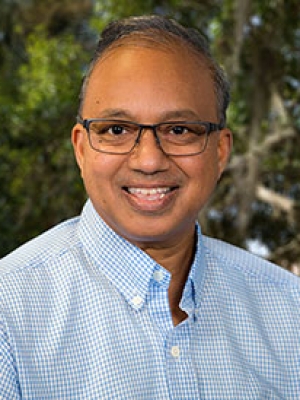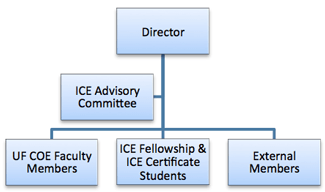 S. “Bala” Balachandar – Director
S. “Bala” Balachandar – Director
William F. Powers Professor, Distinguished Professor, Department of Mechanical & Aerospace Engineering
Affiliate professor, Department of Civil and Coastal Engineering
bala1s@ufl.edu
S. “Bala” Balachandar is currently William F. Powers Professor of the department of mechanical & Aerospace Engineering and affiliate professor of the Civil and Coastal Engineering department. He has over 25 years of research experience in large-scale state-of-the-art simulations of transitional and complex turbulent flows of industrial, environmental and geophysical importance. His expertise includes science-based engineering education, multiscale, multimaterial modeling & simulation of multiphase flows, predictive simulation science and development of numerical & computational techniques for emerging supercomputers.
Dr. Balachandar got his undergraduate degree in Mechanical Engineering at the Indian Institute of Technology, Madras in 1983 and his MS and PhD in Applied Mathematics and Engineering at Brown university in 1985 and 1988. He then briefly worked at NASA Langley Research Center as a contractor. From 1990 to 2005 he was at the University of Illinois, Urbana-Champaign, in the Department of Theoretical and Applied Mechanics. From 2005 to 2011 he was the Chairman of the Department of Mechanical and Aerospace Engineering at the University of Florida. Under his leadership the department rapidly expanded to become the largest department in the college of engineering.
He is currently Fellow of American Physical Society (APS) and American Society of mechanical Engineers (ASME); and Associate Fellow of American Institute of Aeronautics and Astronautics (AIAA). He is currently an associate editor of the International Journal of Multiphase Flow and an editor for the Theoretical and Computational Fluid Dynamics. Bala received the Francois Naftali Frenkiel Award from American Physical Society, Division of Fluid Dynamics (DFD) in 1996 and the Arnold Beckman Award and the University Scholar Award from University of Illinois. In 2003, Bala’s student Dr. Prosenjit Bagchi won the coveted Andreas Acrivos Dissertation Award for best Doctoral Thesis from APS-DFD. In 2006 he was elected Fellow of the American Physical Society. He was the vice-Chair and later the Chair of the Multiphase Flow Technical Committee at ASME and currently member of the division honors and awards committee. He is on the executive board of the International Conference on Multiphase Flow. He also serves on the Engineering Sciences External Review Panel for the Sandia National Laboratories.
Faculty Membership
Membership is available to any faculty with a commitment and capacity to positively contribute to the mission of the Institute. Members of the Institute have access to Institute infrastructure, administration, and resources. Members are expected to participate in seminars, program development, and grant applications in collaboration with other members of the Institute.
The institute is governed by a faculty advisory committee, which consists of faculty member from each of the department in the College of Engineering. This committee will be a significant contributor to the intellectual direction of the Institute. It is responsible for making recommendations about the allocation of Institute resources.
Faculty Advisory Committee
Members of the committee will be chosen by the Institute Director, with approval from the Dean, and will consist of at least one member from each participating department. This committee, chaired by the Director, will be a significant contributor to the intellectual direction of the Institute. It is responsible for making recommendations about the allocation of Institute resources as they become available. The Institute Faculty Advisory Committee is also expected to engage groups with complementary interests, provide leadership within the College, and provide counsel to the Dean’s office regarding the Institute’s specific interdisciplinary research areas.
